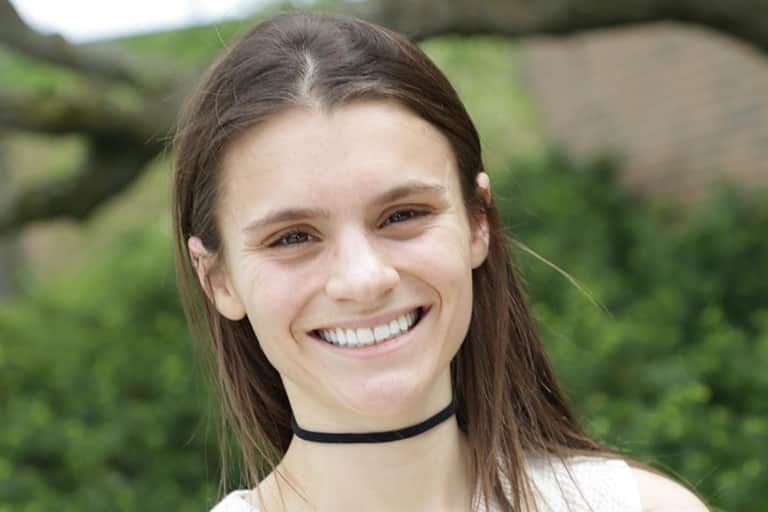Last year, master’s student Samantha Shebib was sitting next to her thesis advisor, Dr. William Cupach, at the National Communication Association (NCA) business meeting in Philadelphia. As they watched the scholars accept their awards he told her, “I can’t wait till it’s you up there,” while pointing toward the stage.
Cupach’s confidence was not unfounded. This November, Shebib, now a doctoral student in ComArtSci’s communication department, will travel to Dallas to publicly receive her NCA Top Master’s Thesis award at the NCA convention. Completing and defending her thesis was the final step in earning her master’s of science in communication from Illinois State University.
“Defending my thesis was very nerve-racking,” said Shebib. “All research has limitations. You must outweigh the pros and cons of every step. You really have to defend what you did, and most importantly, why you did it.”
The NCA’s selection committee judged all of the nominated theses on “the quality of the scholarship, including its conceptual or theoretical foundation, methodological rigor, originality and creativity, substantive contribution, and potential impact in the field.” Not only did her thesis win the NCA award, but it previously gained attention at Illinois State, bringing in the School of Communication’s Outstanding Master’s Thesis award in April.
“To get recognition on something you worked extremely hard for is the most rewarding feeling,” said Shebib. “This NCA [convention] will definitely be a moment I’ll never forget.”
Shebib’s thesis details the various communication patterns marital partners engage in when discussing financial issues and how these communicative patterns are related to their marital satisfaction. Her study found that if a spouse believes they have different beliefs from their marital partner on how financial obligations should be managed, they are more likely to communicate in ways that are dysfunctional. Conversely, if a spouse feels they have similar financial beliefs to their partner, they are more likely to communicate constructively by being cooperative, supportive and compromising.
“Engaging in constructive forms of conflict during financial discussions is related to higher financial communication satisfaction and higher marital satisfaction levels,” said Shebib.
The Ph.D. student said that because all relationships experience conflict, studying interpersonal communication is both relatable and practical and she’s excited for what her next three years at ComArtSci will bring.
“I’m looking forward to learning more here at MSU and working with the incredible faculty in the department of communication,” said Shebib. “Everyone in this department is like a legend in our field, so I couldn’t be more honored to get the opportunity to learn from and work with them.”
Shebib wants to focus her time as a doctoral student on statistics, quantitative research methods and experimental designs, because at the end of the day, she said, the way you design a research study (regardless of the study’s topic) is the most important part.
“As one of my professors, Dr. Van Der Heide, told me, “No math can fix a poor design.” It’s all in the design and the statistical analyses one uses to test the hypotheses they posit,” said Shebib. “What you’re writing theoretically and what you’re hypothesizing need to be faithfully tested by your method.”
By Kaitlin Dudlets
